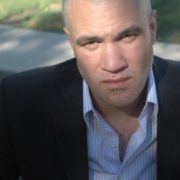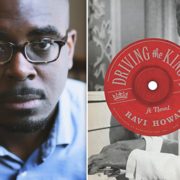Zahir Janmohamed: Writer of Color
We’ve all been there. That moment in a writing workshop where you notice you are the only person of color…and your peers–no matter how liberal and enlightenened–want to talk about your race rather than your work. Writes award-winning journalist and human rights activist Zahir Janmohamed for Guernica Magazine’s “Race Issue:”
I sat on the bean bag chair off to the side of the room, sipped my Diet Coke, and waited for comments on my submission at a writers’ group in Sacramento, California.
“So in this book, do you write about Pakistan too?”
“Actually my book is about India, not Pakistan,” I explained to the writer sitting across from me.
“Right,” he said, drinking a glass of wine. “But I think you should still write about Pakistan. You know, like a comparison.”
An elderly woman lowered her reading glasses. “So these Muslim kids you write about, the ones whose parents were burned alive in Gujarat,” she said, over-accentuating the second syllable of the word Gujarat, “Do you ever worry these kids will be radicalized? Like, you know, become suicide bombers?”
Another writer asked: “So do you just write political stuff? Because I think you should have more fun with this.” I wrote his comment down to be polite, but I wondered where “fun” was in writing about a tragedy like the 2002 Gujarat riots?
One writer had not yet given her feedback. She sat in silence and then reached over, her hand—white like every other in the room—touched my arm in the space between my elbow and my shoulder.
“I am sorry you had to witness [the riots]. Are you ok?”
I wanted to tell her thank you for asking, but no, I am not ok in being asked if I am ok.
I came to this workshop to understand if my sentences work, if my pacing is effective, and not to be told I need to write about countries I have never visited just because I share the same faith.
I wanted to say I am not a political writer. My life has never been political, but sometimes, like that one time when I was dressed in my swim trunks and flip flops and flew to Miami with my friends and a TSA agent pulled me aside and questioned me about the nature of “my business in the U.S.,” well, then the story of my life is made “political.”
“I wanted to tell them that if being a writer is to endure loneliness then being a writer of color in America is to suffer banishment: the only boat off this island often being if I write a certain kind of story in a certain kind of way for a certain kind of audience, which is to say—and we do not say these words enough—for a white audience.
Read the rest of his insightful article HERE!










